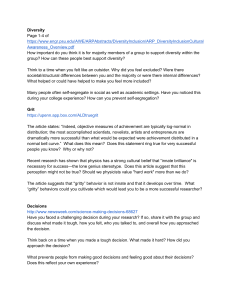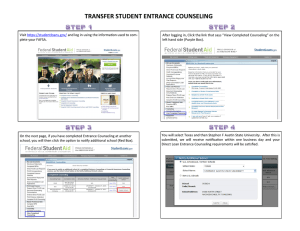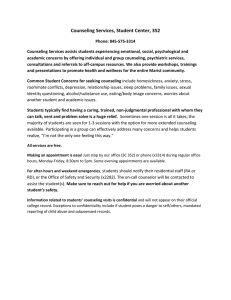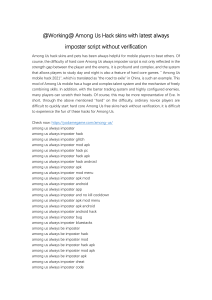of Imposter Feelings
advertisement
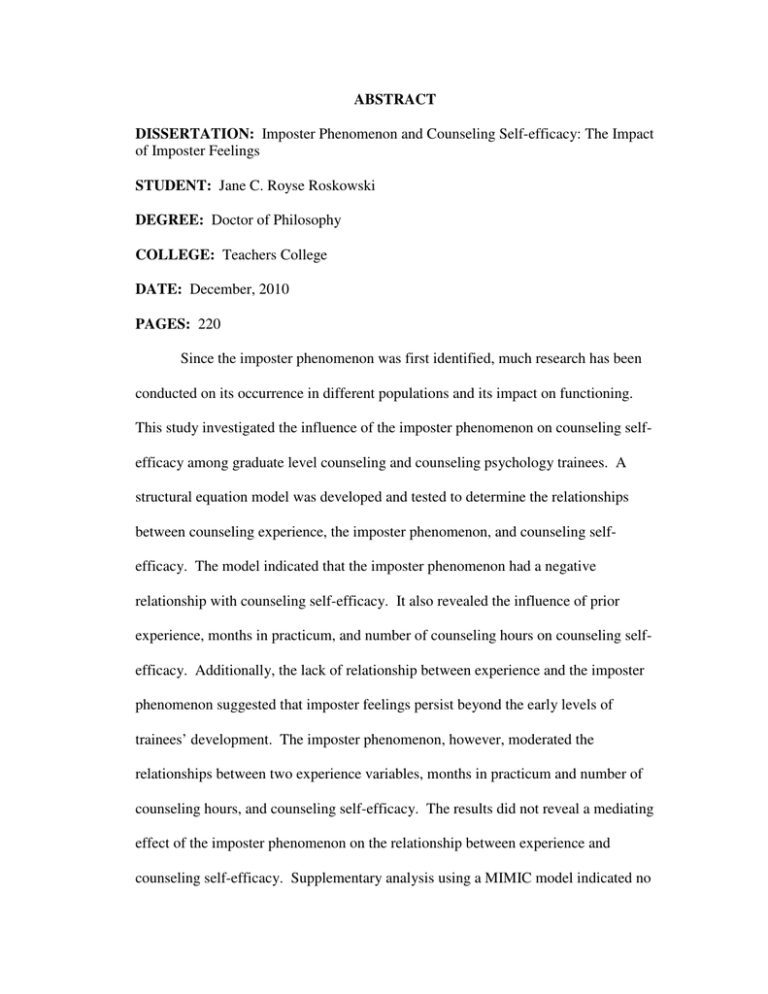
ABSTRACT DISSERTATION: Imposter Phenomenon and Counseling Self-efficacy: The Impact of Imposter Feelings STUDENT: Jane C. Royse Roskowski DEGREE: Doctor of Philosophy COLLEGE: Teachers College DATE: December, 2010 PAGES: 220 Since the imposter phenomenon was first identified, much research has been conducted on its occurrence in different populations and its impact on functioning. This study investigated the influence of the imposter phenomenon on counseling selfefficacy among graduate level counseling and counseling psychology trainees. A structural equation model was developed and tested to determine the relationships between counseling experience, the imposter phenomenon, and counseling selfefficacy. The model indicated that the imposter phenomenon had a negative relationship with counseling self-efficacy. It also revealed the influence of prior experience, months in practicum, and number of counseling hours on counseling selfefficacy. Additionally, the lack of relationship between experience and the imposter phenomenon suggested that imposter feelings persist beyond the early levels of trainees’ development. The imposter phenomenon, however, moderated the relationships between two experience variables, months in practicum and number of counseling hours, and counseling self-efficacy. The results did not reveal a mediating effect of the imposter phenomenon on the relationship between experience and counseling self-efficacy. Supplementary analysis using a MIMIC model indicated no significant relationship between gender and imposter feelings. Strengths, limitations, directions for future research, and implications for practice and training counselors and counseling psychologists were presented.
